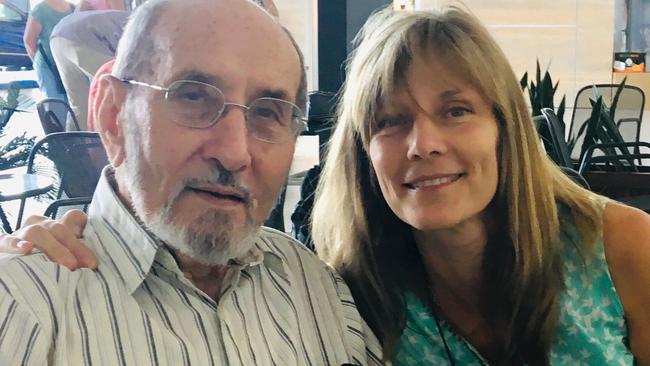Yugoslavia’s secret police tried to assassinate Queensland canecutter Nikola Stedul
Successive Australian governments bought the line that Nikola Stedul had terror on his mind.

OBITUARY
Nikola Stedul
Croatian patriot. Born Resetarevo, Yugoslavia (now Croatia), December 2, 1937; died Croatia, March 15, aged 84.
“Stoop, chop, straighten, top.” That was the mantra of thousands of men cutting north Queensland’s cane by hand in the post-war years. It was the definition of backbreaking. The ash and bristles of the burnt cane – an irascible, unavoidable daily enemy – stuck to sweated bodies. The work was uniquely hazardous. There were venomous snakes, including the coastal taipan and eastern brown, among the world’s deadliest, and odd illnesses such as Weil’s disease contracted from rat urine.
Only the hardiest men joined the cutting gangs. And plenty came from eastern Europe after their homelands were marshalled into the communist bloc where the spirit of so many would be crushed in an order set by Joseph Stalin, for whom, infamously, a million deaths were “a statistic”.
But many of the brave men and women displaced by that inhumanity and the dictators who festered across a war-weary continent did not see themselves as refugees; they planned and worked towards a free Europe to which they hoped to return. If not them, perhaps their children.
One of them was Nikola Stedul. At the end of World War II, Stedul, a sheet metal worker and plumber, moved first to Austria, then to West Germany, before migrating to Australia where he found seasonal work in the cane fields.
There he met another migrant, Scottish-born Shirley. They married in 1965 and ran a modest tobacco farm at Mareeba, an hour west of Cairns. Stedul also helped out with an organisation outlawed in Yugoslavia, the Croatian Movement for Statehood.
In 1973, the Steduls, with daughters Kristina and Monica in tow, moved to Germany to visit his widowed mother. These were dangerous times for Croat nationalists. Yugoslavian dictator Josip Broz Tito, using his feared secret police, the Uprava Drzavne Bezbednosti (known as UDBA) was killing real and perceived enemies across the world. Tito played Moscow and the West off against each other masquerading as an acceptable face of communism, the West eagerly taking the bait as Yugoslavian embassies warned Western governments of “Croatian terrorists” in their midst.
Such claims were the basis of the disastrous 1973 raid on ASIO orchestrated by Labor’s attorney-general Lionel Murphy. Murphy believed sensitive files on murderous Croatian separatists were held by ASIO. It seems he forgot to tell prime minister Gough Whitlam. It was a deeply humiliating episode for the four-month-old government and there are those who maintain it never recovered.
But the damage to Stedul had been done. He had already been interviewed by ASIO, whose secret files on him and other Croatians must have condemned them as trouble. When Stedul sought to return to Australia he was refused a replacement for his outdated passport. Acting on ASIO’s advice, Australian governments kept him offshore for three decades.
The family moved to Scotland and settled in Kirkcaldy on the east coast between Edinburgh and Dundee as Stedul attended university, graduating in philosophy and political science while driving taxis. By 1988 Tito was dead, but the UDBA kept up its extrajudicial killings, eliminating more of its enemies than the KGB did of theirs.
In 1988 they came after him. On the morning of October 28, as Stedul walked his dog, Vinko Sindicic, a Yugoslavian spy and former resident of Australia, drove up to the former canecutter and shot him twice in the mouth – this was symbolically to warn others to keep quiet – and four times in his body, but Stedul’s German shepherd Pasha barked at the attacker, who dared not leave his car.
A postman had seen the suspicious vehicle and noted its number plate. Sindicic was arrested with a false passport at Heathrow airport and charged with attempted murder (he had reportedly killed others across Western Europe). Staff at London’s Yugoslavian embassy lied that Sindicic had been with them at the time of the shooting, but police located the weapon and gunpowder residue on his skin. Found guilty, he was sentenced to 32 years and served nine. At the time of the trial, British prime minister Margaret Thatcher was to meet the Yugoslavian foreign minister, and was advised not to raise the case.
Finally, Australian authorities allowed the Steduls to return and they lived for a while in the Melbourne suburb of Altona. Today Stedul’s children are back in Scotland, where he lived until returning to liberated Croatia.
On August 23, 2016 Croatia held a day of remembrance for the victims of its authoritarian regime and its president, Kolinda Grabar Kitarovic, awarded a medal of honour to Stedul for seeking social justice for his people.




To join the conversation, please log in. Don't have an account? Register
Join the conversation, you are commenting as Logout